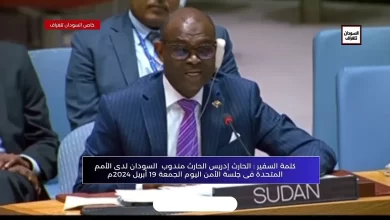The Last Resort ..!!
Ashraf Abdulaziz

It is rather clear that the war in Sudan has recently garnered unparalleled international attention, which was evident through the hectic movements that began with the meeting of the African Peace and Security Council on the 22nd of June, then the visit of the Saudi Deputy Foreign Minister (Al-Khuraiji) to Sudan, followed by the Ethiopian Prime Minister, Abiy Ahmed’s visit to Port Sudan, and the phone call between Army Commander-in-Chief, Al-Burhan and Mohammed bin Zayed, the President of the United Arab Emirates.
While Geneva witnessed indirect discussions between the Army and Rapid Support Forces on the humanitarian file and delivering aid to those affected. Recently, the American government invited both parties to the conflict to hold discussions in Geneva for a ceasefire. It was preceded by an invitation from the Djiboutian President Ismail Omar Guelleh to a four-party “IGAD” Conference to discuss unifying initiatives aimed at stopping the war in Sudan.
International attention was imposed by the fragmented reality on the ground, which United Nations agencies continued to report every morning and night. The International Health Organization stated that 75% of hospitals in Sudan no longer provide treatment services to patients, indicating a scarcity of life-saving medicines.
As for the International Organization for Migration, it indicated that fifth of Sudan’s population has become displaced, wandering in displacement camps, shaking like pigeons and fluffy chicks.
According to the “UNICEF”, more than (4) million of Sudan’s population have been displaced. That is, in addition to the “FAO” report, that confirmed the failure of the summer agricultural season, which in turn, reinforced the looming threat of famine, and that the issue is no longer just an imminent threat to sound the alarm.
The war in Sudan has long disturbed the neighboring countries, especially Egypt, Ethiopia, Eritrea and South Sudan, fearing that the displacement influx will affect various issues classified by these countries as security threats. Economic interests between Sudan and neighboring countries have also declined.
At the local level, the Sudanese economy has collapsed, the value of Sudanese Pound (SDG) has declined, and the State is currently in jeopardy, relying solely on what the “Blabsa” issue, which -in turn- is no longer valid.
Numerous families have come to rely mainly on charitable kitchens, while prisons hold the activists who reject the continuation and expansion of the war, those who were accused by the “cowards” under the pretext of malicious intent and incitement of hate speech.
Certainly, all of the aforementioned reasons have convinced the international community of the necessity of stopping the war in Sudan, and therefore the pressures have intensified this time to such an extent that it is difficult for the dissolved National Congress Party and its ally, the Islamic Movement, to confront it and convince the Army to continue the war in order to fulfill their desire to restore power. The dissolved National Congress Party issued a statement in which it welcomed international efforts in accordance with conditions that express its desires.
The Sudanese people must realize that the last-resort dialogue is upon us. Everyone must place aside their bitterness and support the international efforts because the result of the continuation of the war has become clearly visible (displacement, death, and looting)… Sudan is a homeland that can accommodate everyone.
Quoted from AL-Jareeda Newspaper





